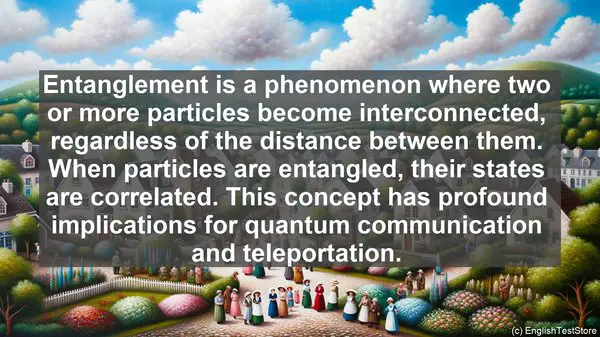Introduction
Welcome to our quantum physics class. Today, we’re going to discuss the top 10 commonly confused words in this fascinating field. Understanding these terms is crucial for mastering the subject. So, let’s dive in!
1. Wave-Particle Duality
One of the fundamental concepts in quantum physics is wave-particle duality. It states that particles, such as electrons, can exhibit both wave-like and particle-like behavior. This duality can be mind-boggling, but it’s essential to comprehend the nature of quantum entities.

2. Superposition
Superposition refers to the ability of quantum systems to exist in multiple states simultaneously. Unlike classical systems, which are limited to one state, quantum systems can be in a combination of states. This principle is the foundation of quantum computing and cryptography.
3. Entanglement
Entanglement is a phenomenon where two or more particles become interconnected, regardless of the distance between them. When particles are entangled, their states are correlated. This concept has profound implications for quantum communication and teleportation.

4. Observer Effect
The observer effect refers to the idea that the act of observing a quantum system can alter its state. This effect arises due to the interaction between the system and the measurement apparatus. It highlights the inherent connection between the observer and the observed.
5. Uncertainty Principle
The uncertainty principle, formulated by Werner Heisenberg, states that certain pairs of physical properties, such as position and momentum, cannot be simultaneously known with absolute precision. This principle sets a fundamental limit on the precision of measurements in the quantum world.
6. Quantum Tunneling
Quantum tunneling is a phenomenon where a particle can pass through a potential barrier, even if its energy is lower than the barrier’s height. This behavior defies classical intuition but is a consequence of the wave-like nature of particles.
7. Quantum Decoherence
Quantum decoherence refers to the loss of coherence in a quantum system. When a system interacts with its environment, the delicate quantum states can become entangled with the surroundings, leading to a loss of information. Decoherence is a significant challenge in quantum computing.
8. Quantum Supremacy
Quantum supremacy is a term used to describe the point at which a quantum computer can perform a calculation that is infeasible for classical computers. Achieving quantum supremacy is a major milestone in the field of quantum computing.
9. Quantum Teleportation
Quantum teleportation is a process where the quantum state of a particle is transferred to another distant particle, without physically moving the particle itself. It relies on the principles of entanglement and is a crucial aspect of quantum communication.
10. Quantum Cryptography
Quantum cryptography is a field that explores the use of quantum principles for secure communication. Unlike classical encryption methods, which can be broken with sufficient computational power, quantum cryptography offers provable security based on the laws of physics.
